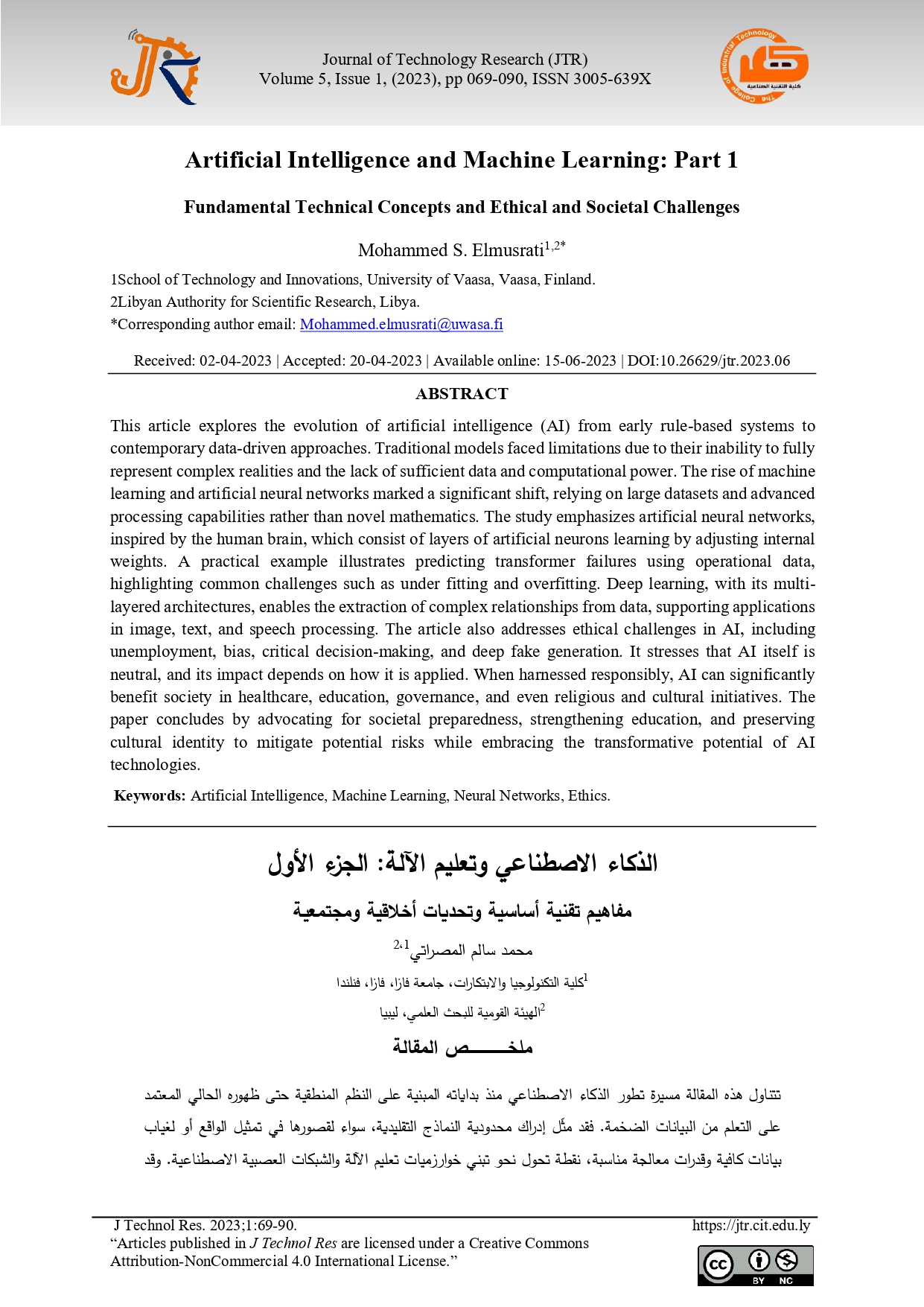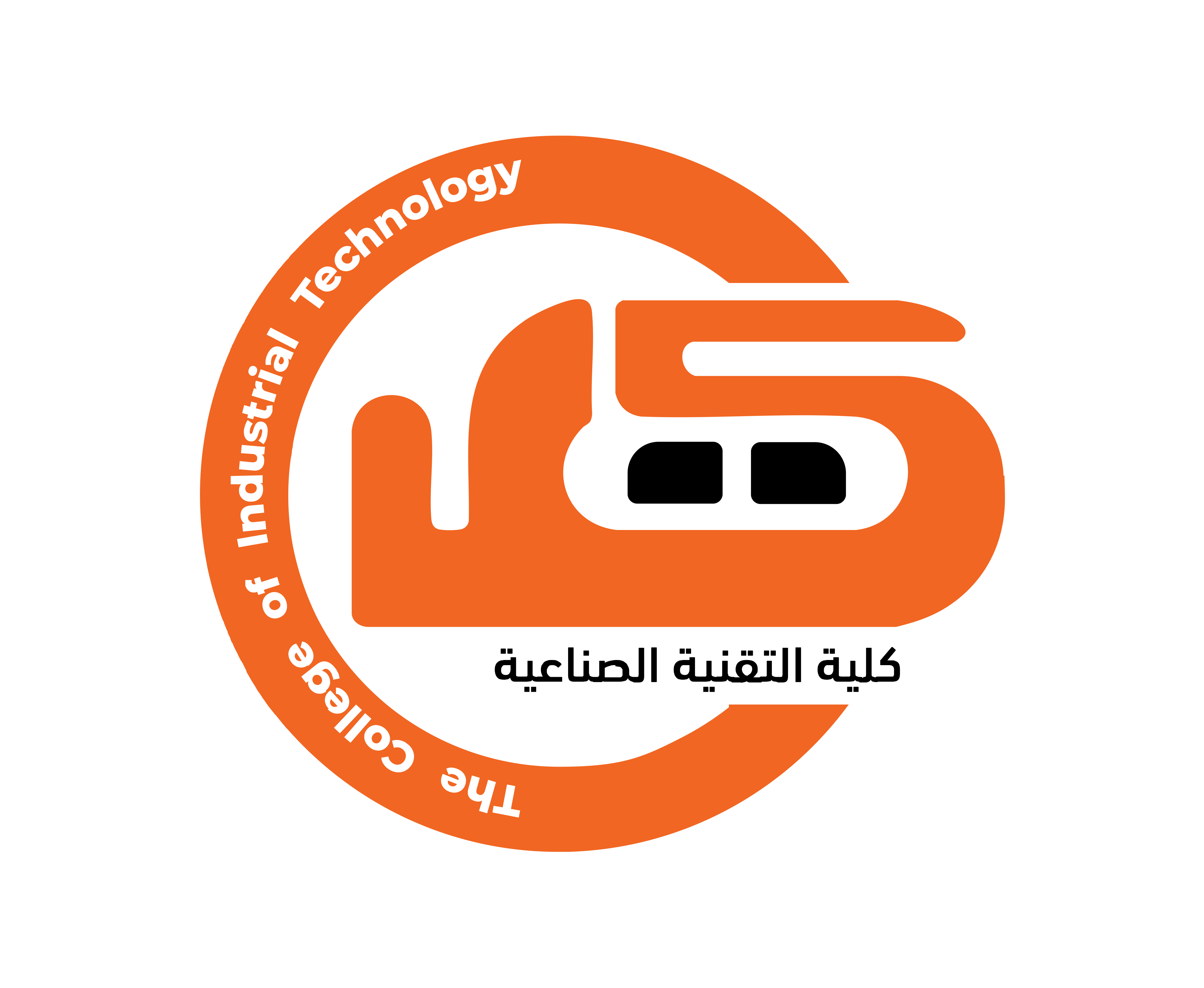Artificial Intelligence and Machine Learning: Part 1
Fundamental Technical Concepts and Ethical and Societal Challenges
DOI:
https://doi.org/10.26629/jtr.2023.06Keywords:
Artificial Intelligence, Machine Learning, Neural Networks, EthicsAbstract
This article explores the evolution of artificial intelligence (AI) from early rule-based systems to contemporary data-driven approaches. Traditional models faced limitations due to their inability to fully represent complex realities and the lack of sufficient data and computational power. The rise of machine learning and artificial neural networks marked a significant shift, relying on large datasets and advanced processing capabilities rather than novel mathematics. The study emphasizes artificial neural networks, inspired by the human brain, which consist of layers of artificial neurons learning by adjusting internal weights. A practical example illustrates predicting transformer failures using operational data, highlighting common challenges such as under fitting and overfitting. Deep learning, with its multi layered architectures, enables the extraction of complex relationships from data, supporting applications in image, text, and speech processing. The article also addresses ethical challenges in AI, including unemployment, bias, critical decision-making, and deep fake generation. It stresses that AI itself is neutral, and its impact depends on how it is applied. When harnessed responsibly, AI can significantly benefit society in healthcare, education, governance, and even religious and cultural initiatives. The paper concludes by advocating for societal preparedness, strengthening education, and preserving cultural identity to mitigate potential risks while embracing the transformative potential of AI technologies.
Downloads

Downloads
Published
Issue
Section
License

This work is licensed under a Creative Commons Attribution-NonCommercial 4.0 International License.















